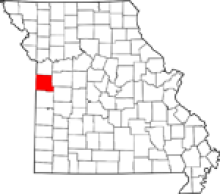Salisbury's Fibrant Deals with Incumbent B.S. Before Launch
As Salisbury prepares to officially launch its publicly owned FTTH network offering triple-play services, it offers lessons for other communities that want to follow in its footsteps. As we wrote a month ago, Fibrant has candidly admitted it cannot win a price war with incumbents. Companies like Time Warner Cable have a tremendous scale advantage, which allows them to price below cost in Salisbury because the large profits from all the non-competitive markets nearby can subsidize temporary losses.
On October 10, the Salisbury Post ran a story "Fibrant can't match cable company specials." Alternative possible titles for the article could have been "Cable Co cuts prices to drive competition from market," or "Time Warner Cable admits customers pay different prices for same services." Interestingly, when Fibrant unveiled its pricing originally, the headline read "Fibrant reveals pricing" rather than "Fibrants offers speeds far faster than incumbents."
A lesson for community networks: do not expect the media to cover you fairly. The big companies have public affairs people with relationships with the press and they often buy a lot of local advertising. This is not to say all local media is bought off -- far from it -- but local media will have to be educated about the advantages of community networks.
Quick question: When you hear this quote, who do you first think of?
"We always work with customers to meet their needs and budget."The cable company, right? Well, that is Time Warner Cable's claim in the above Salisbury Post article. Later in the article, a local business owner expressed a different sentiment: "Time Warner has the worst customer service I have ever dealt with." The business owner goes on:
“Fibrant may have these same kind of issues, however I can actually go to the source to deal personally with someone who is vested in the community, not spend two hours on the phone and never solve the problem as I do with TWC,” he said. “Even if pricing is higher, I would make the change.




